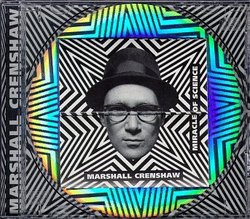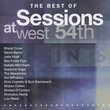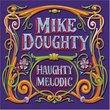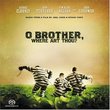| All Artists: Marshall Crenshaw Title: Miracle of Science Members Wishing: 1 Total Copies: 0 Label: Razor & Tie Original Release Date: 7/18/1996 Re-Release Date: 7/23/1996 Genres: Alternative Rock, Pop, Rock Styles: New Wave & Post-Punk, Power Pop Number of Discs: 1 SwapaCD Credits: 1 UPCs: 793018282321, 5019148922315, 793018282345, 829410313469, 766484184826 |
Search - Marshall Crenshaw :: Miracle of Science
 | Marshall Crenshaw Miracle of Science Genres: Alternative Rock, Pop, Rock
In 1982, Marshall Crenshaw seemed destined for the throne of power pop. He had the beat of Buddy Holly, none of Elvis Costello's angst, and a brilliant self-titled debut album. Sadly, the decade's musical tastes swung from... more » |
Larger Image |
CD DetailsSynopsis
Amazon.com In 1982, Marshall Crenshaw seemed destined for the throne of power pop. He had the beat of Buddy Holly, none of Elvis Costello's angst, and a brilliant self-titled debut album. Sadly, the decade's musical tastes swung from guitar pop to synth pop, and Crenshaw was left a critically acclaimed outcast. Fourteen years later, a more mature Crenshaw reemerges with Miracle of Science. Songs of love have given way to songs of relationships, while tracks like the mournful "Laughter" look back on broken hearts with the insight that only time provides. Still, he tempers even the album's darker emotions with killer hooks, maintains his twisted sense of humor, and builds on his danceable guitar pop by digging deep into his love for country and blues. His brilliant guitar work floats over driving rhythms, and a handful of well interpreted covers (including Grant Hart's "Twenty-five Forty-one") put this album over the edge. --Bill Snyder Similar CDs
Similarly Requested CDs
|
CD ReviewsAnother buried classic -- it grows on you John Stodder | livin' just enough | 09/04/2001 (5 out of 5 stars) "Well, at first I was disappointed, a little. More for the atmospherics than the music. Before this album, MC was a major label artist, and now he wasn't. The recording quality was a little less than what he'd been giving us. But I pulled this out the stacks the other day and was struck by how incredibly fresh and creative it sounds. And how heart-felt. Of latter-day MC albums, I still think "Life's Too Good" is his best (and it's criminal you can't get it anywhere except used), but you could probably make a case for this one and unless you hired Alan Dershowitz, you could win a 5-4 decision at the Supreme Court." Purely delightful pop from a great talent John Stodder | 01/05/2000 (5 out of 5 stars) "I haven't heard any of the albums between Miracle of Science and Crenshaw's wonderful debut, now 20 years old. So I'm thinking the reason previous reviewers gave MoS 4 stars must be that all those albums were even better than this one. Why else wouldn't anyone give this one five stars? It is purely delightful. Pop music that makes me sing along, tap my toes, air guitar, and dream of love. Best of all, the melodies are reminiscent of the best of 60's pop. Nobody else does what this guy does, he is a true treasure." A real return to form; one of his best. bruce horner | 08/17/2000 (5 out of 5 stars) "This is simply one of Marshall Crenshaw's finest albums. So many people like to compare his every new release with his wonderful debut, but this is the first that can stand up to the (unfair) comparison, and even come out ahead in some respects. Sure, it may not be every bit as consistant (what album is?) but his guitar playing is better than ever, his songwriting has deepened ("What Do You Dream Of?" for instance, and "There And Back Again") and he's pushing out in some new musical directions. The instrumental "Theme From 'Flaregun'"---equal parts surf, rockabilly, and Hollywood---will sink deep into your neurons if you let it. "Starless Summer Sky" seems like a return to the younger, romantic Crenshaw for the good reason that it's a redoing of an old song. (Comparison to the 1979 demo version is highly instructive.) Also the snap and hiss at the beginning of that song, as of a needle in a record groove, is a witty, nostalgic tip of the hat to the days of vinyl. "Who Stole That Train" shows that Crenshaw can still rock out when he wants to. The production fairly sparkles and shimmers (with a few unusual instruments to add occasional spice, such as horns in "The 'In' Crowd", strings in "A Wondrous Place") and the sequencing is well thought-out. This is an album that flows really well, and grows in the mind with each listening. Crenshaw produced this Miracle after laying off for about five years. Apparently the rest recharged his creative batteries. If he can come out with another album this good in say, 2004 or 2005, that would be fine with this fan."
|

 Track Listings (11) - Disc #1
Track Listings (11) - Disc #1









